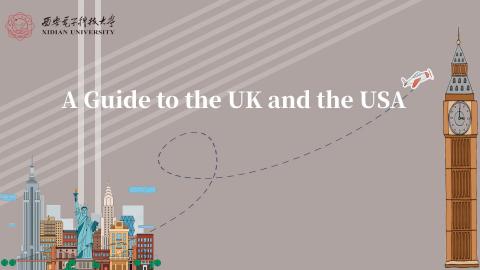
- 西安电子科技大学
- 建议每周学习2小时
- 1399人已参与
微信课程提醒

教学团队
课程特色
- 讨论区
- 问答
问 The different wars experienced by the United States have had significant impacts on American development in various ways. Here are some key effects of major wars in U.S. history: Revolutionary War (1775-1783): Independence: The Revolutionary War led to
The different wars experienced by the United States have had significant impacts on American development in various ways. Here are some key effects of major wars in U.S. history:
-
Revolutionary War (1775-1783):
- Independence: The Revolutionary War led to the establishment of the United States as an independent nation, breaking away from British colonial rule.
- Constitutional Framework: The war highlighted the weaknesses of the Articles of Confederation, leading to the drafting of the U.S. Constitution, which shaped the framework of American governance.
-
Civil War (1861-1865):
- Preservation of the Union: The Civil War solidified the federal government's authority and preserved the Union, preventing the secession of the southern states.
- Abolition of Slavery: The war ultimately led to the Emancipation Proclamation and the abolition of slavery, advancing civil rights and equality in the United States.
-
World War I (1917-1918):
- Emergence as a Global Power: World War I marked the United States' emergence as a major global power. It played a crucial role in the Allied victory and contributed to the reshaping of the international order.
-
World War II (1941-1945):
- Economic Boom: World War II stimulated the U.S. economy, as industries rapidly expanded to support the war effort. The war paved the way for post-war economic growth and the United States becoming a superpower.
- Global Leadership: The war solidified the United States' role as a world leader and initiated its involvement in global affairs, including the establishment of the United Nations and NATO.
-
Cold War (1947-1991):
- Arms Race and Technological Advances: The Cold War between the United States and the Soviet Union fueled an arms race and competition in scientific and technological advancements, leading to significant innovations in fields such as aerospace, defense, and computing.
- Space Exploration: The competition between the U.S. and the Soviet Union during the Cold War spurred the space race, resulting in landmark achievements such as the moon landing in 1969.
-
Vietnam War (1955-1975):
- Social and Political Divisions: The Vietnam War deeply divided American society and sparked protests and movements against the war, contributing to significant social and political changes.
- Public Perception of War: The war's controversial nature and its portrayal in the media affected public trust in government institutions and influenced subsequent U.S. foreign policy decisions
0 所有答案
- 还没有答案,赶快添加一个吧!
添加答案
教学团队
课程特色
 您确定给 “0” 位老师发送协议吗?
您确定给 “0” 位老师发送协议吗?
导言
欢迎使用UMOOCS的服务!
(1)免除或者限制我们责任的条款
(2)限制您权利的条款
(3)管辖与法律适用条款
除非您已充分阅读、完全理解并接受本协议所有条款,否则您无权使用UMOOCS服务。 您点击“同意”或“下一步”,或您使用UMOOCS服务,或者以其他任何明示或者默示 方式表示接受本协议的,均视为您已阅读并同意签署本协议。本协议即在您与我们之间 产生法律效力,成为对双方均具有约束力的法律文件。
定义
UMOOCS平台:是指中国高校外语慕课平台,以下简称“UMOOCS”或“本平台”。
UMOOCS规则:是指您使用UMOOCS慕课平台服务过程中所涉及的任何体现双方合意的书面材料,包括但不限于服务协议、隐私政策、单独协议等。
U校园:是指外研在线旗下U校园智慧教学云平台。
协议的范围
【签约主体】本协议是您与我们之间关于您使用UMOOCS以及相关服务所订立的协议。 “用户”是指UMOOCS的服务的使用人,在本协议中更多地称为“您”。
【服务内容】UMOOCS的服务是指我们向用户提供的,包括但不限于课程上传、课程 展示与推广、课程学习、资源积累、课程共享等产品及服务,具体服务以我们实际 提供的为准(以下简称“本服务”)。
【补充协议】本协议内容同时包括《UMOOCS隐私政策》,且您在使用UMOOCS某一 特定产品或服务时,该服务可能会另有单独的协议、相关业务规则等(以下统称为 “单独协议”)。上述内容一经正式发布,即为本协议不可分割的组成部分,您同 样应当遵守。如您同意使用本服务,则视为您同意上述各协议的内容。
【协议更新】我们会根据国家法律法规变化及维护交易秩序、保护消费者权益以及 自身业务发展变化的需要等原因,不时修改本协议、补充协议,变更后的协议、补 充协议将通过法定程序和本协议约定的方式告知您。如您不同意相关变更,我们将 停止提供本服务。如您继续登录使用本服务将表示您已阅读、理解并接受经修订的 协议。
账号注册与使用
【用户资格】您确认,在您开始使用本服务前,您应当具备中华人民共和国法律规 定的与您行为相适应的民事行为能力。若您不具备前述与您行为相适应的民事行为 能力,则您及您的监护人应依照法律规定承担因此而导致的一切后果。
【账户获得】当您按照注册页面提示填写信息、阅读并同意本协议且完成全部注册 程序后,您可获得账户并成为本平台用户。我们会按照国家法律法规的实名制要求 协助您完成注册,您应当保证注册所提交的信息真实有效,当您信息更新时请及时 登录本平台修改,避免给您后续使用带来不便的影响。
【账号使用】您在使用本服务时注册及使用的账号及账号内容,应当符合法律法规 (本协议中的“法律法规”指用户所属/所处地区、国家现行有效的法律、行政法 规、司法解释、地方法规、地方规章、部门规章及其他规范性文件以及对于该等法 律法规的不时修改和补充,以及相关政策规定等,下同)、公序良俗、社会公德以 及UMOOCS平台规则,且不会侵害任何主体的合法权益。
【账号通用】您所注册的用户账号为您使用我们供的产品及服务的通行证。您使用 在我们所提供的任一产品或服务时注册的账号,即可登录我们的其他任一产品。
【账号注销】您可随时更正、修改您向我们提供的信息,也可以随时注销账户并重 新注册一个新账户。若您发现任何非法使用用户账户或本服务存在安全漏洞的情况, 请立即通知我们。
【转让限制】除有法律明文规定、司法裁定或经我们同意之外,您的账户不得以任 何方式转让,否则由此产生的一切责任均由您承担。
【使用限制】您的账户只限您本人使用,不得出借或分享他人使用。当您的账户遭 到未经授权的使用时,您应当立即通知我们,否则未经授权的使用行为均视为您本 人的行为,您将自行承担所有由此导致的损失及后果。
【保管义务】您的账户为您自行设置并由您保管,请确保您在每个上网时段结束时 退出登录并以正确步骤离开本平台。账户因您主动泄露或因您遭受他人攻击、诈骗 等行为导致的损失及后果,本平台并不承担责任,您应通过司法、行政等救济途径 向侵权行为人追偿。
【账户行为责任自负】除本平台存在过错外,您应对您账户项下的所有行为结果(包 括但不限于在线签署各类协议、发布信息、披露信息等)负责。
【日常维护须知】如发现任何未经授权使用您账户登录本平台或其他可能导致您账 户遭窃、遗失的情况,建议您立即通知我们,我们将通过协助您设置安全系数更高 的密码或者启动账号找回等方式防止损失扩大。您理解对您的任何请求采取行动均 需要合理时间,且我们应您请求而采取的行动可能无法避免或阻止侵害后果的形成 或扩大,除本平台存在法定过错外不承担责任。
用户个人信息保护
【一般规则】尊重用户个人隐私是我们的一项基本政策。我们会尽最大努力使用相 关安全技术和程序,建立完善的管理制度以保护您的个人信息免遭泄露。对于您所 提交的注册信息以及产品和服务使用过程中涉及个人信息的内容,我们将严格按照 《UMOOCS隐私政策》的规定进行收集、处理和使用。
您的权利义务
【上传课程】您可通过本平台上传您的课程并决定课程的使用群体和范围。您理解 并同意,我们所提供的UMOOCS可供您上传您的课程,但您在使用我们的服务时必须 按照平台预先设置的上传流程及课程内容设置等统一系统步骤来实现。
【获取课程】您可通过本平台获取经版权人/所有权人授权公开的课程并在平台允许 的范围内使用。您理解并同意,您获取、使用课程前,您应详细阅读课程介绍,关 注课程介绍中公示的课程内容等。如课程的获取需要特定条件的,版权人/所有权人 将公示有关的获取条件,请您认真仔细查阅,并遵守版权人/所有权人设置的条件。若因我们的过错造成的(例如系统故障)您获取的课程无法使用的,您可及时联系 我们对有关情况进行整改和解决。
【发布信息】您可就所学习的课程,参与讨论、发表评论或记录学习感受,我们可 能会公开您上传的此等内容,就您发布的此等内容应当符合法律法规的规定以及我 们的协议、政策、公告声明的约定。
用户行为规范
【禁止违法违规内容】您不得利用本服务制作、复制、发布、储存国家法律法规禁 止的内容:
(1)违反宪法确定的基本原则的;
(2)危害国家安全、泄露国家秘密、颠覆国家政权、破坏国家统一的;
(3)损害国家荣誉和利益的;
(4)煽动民族仇恨、民族歧视,破坏民族团结的;
(5)破坏国家宗教政策、宣扬邪教和封建迷信的;
(6)散布谣言、扰乱社会秩序、破坏社会稳定的;
(7)散布淫秽、色情、赌博、暴力、恐怖或者教唆犯罪的;
(8)侮辱或者诽谤他人、侵害他人合法权益的;
(9)煽动非法集会、结社、游行、示威、聚众扰乱社会秩序的;
(10)以非法民间组织名义活动的;
(11)侵害他人名誉权、肖像权、隐私权等人身权利或个人信息或其他合法权利的;
(12)含有法律、行政法规禁止的其他内容的。
【合理使用服务】除非法律允许或我们书面许可,您使用本服务过程中不得从事下 列行为
(1)删除本服务产品或内容中关于著作权等合法权利的信息;
(2)对我们提供的任何产品进行反向工程、反向汇编、反向编译,或者以其他方式尝试 发现上述产品的源代码;
(3)对我们拥有知识产权的内容进行非法使用、出租、出借、复制、修改、链接、转载、 汇编、发表、出版、建立镜像站点等;
(4)对我们提供的任何产品或者相关服务运行过程中释放到任何终端内存中的数据、软 件或服务运行过程中客户端与服务器端的交互数据,以及相关软件运行所必需的系 统数据,进行复制、修改、增加、删除、挂接运行或创作任何衍生作品,形式包括 但不限于使用插件、外挂或未经我们授权的第三方工具/服务接入我们的产品或相 关系统;
(5)通过修改或伪造本服务运行中的指令、数据,增加、删减、变动本服务的功能或运 行效果,或者将用于上述用途的软件、方法进行运营或向公众传播,无论这些行为 是否为商业目的;
(6)通过非我们开发、授权的第三方软件、插件、外挂、系统,登录或使用本服务,或 制作、发布、传播上述工具;
(7)自行或者授权他人、第三方软件对本服务其组件、模块、数据进行干扰;
(8)其他未经我们明示授权的行为。
【合理设置】您在设置您的账户信息、发布课程内容以及应当遵守我国相关法律法 规的要求,同时也应坚持正确的价值观导向和道德规范,不设置过分夸大宣传、误 导他人的账户名称、课程标题和课程描述等,课程内容真正有利于知识的传播分享。
第三方提供的产品或服务
【第三方系统对接】您在UMOOCS平台上需要实现校内资源整合或引进其他用户上传 的课程时,我们将向您提供相关服务,并通过U校园智慧教学平台将您的资料等进 行必要的整合,您理解并同意在您有相关需求时我们会依据本协议及《UMOOCS隐私 政策》在您明确同意的前提下将您的数据与U校园系统对接。
【第三方链接】我们提供的部分课程还可能以第三方链接的形式位于本平台内,您 需跳转至第三方进行此类课程的浏览及学习。我们将不会对第三方平台上的内容承 担任何责任,请您仔细阅读并遵守第三方平台的协议。
本平台权利义务
【软件更新】为了改善用户体验、保障服务的安全性及产品功能的一致性等目的, 我们可能会对软件进行更新。 您应该将相关软件更新到最新版本,否则因您未及时更新版本而导致的软件或服务不能正常使用的情形,我们不承担相关责任。
【获取来源】我们可能为不同的终端设备开发不同的软件版本,您应当根据实际情 况选择下载合适的版本进行安装。您可以直接从UMOOCS平台上获取软件,也可以从 得到我们授权的第三方处获取。
【责任豁免】您理解并同意,我们的所有服务和软件均是按原状而提供。我们将尽 最大努力向您提供服务,确保服务的连贯性和安全性;但没有对我们的服务、软件 或任何通过外研在线的服务提交、提供或显示的内容做出任何声明、保证或给予任 何承诺,包括:
(1)我们的服务或软件将不受干扰、是安全的、没有错漏或没有病毒;
(2)我们的服务或软件将会与您的设备兼容;
(3)我们的服务或软件有关适销质量、适合特定用途或没有侵犯任何人的知识产 权等方面的任何声明、保证或承诺。
【责任边界】您理解,本平台为《中华人民共和国电子商务法》中所称“平台经营 者”,尽管本平台会在您上传课程过程中进行审核,但本平台仅承担法律法规要求的初 步的、形式上的审核责任,并对课程内容是否违反国家强制性规范承担必要的审核责任。 本平台对于部分课程内容上传前的修改建议不构成对该课程承担责任的理由。
知识产权保护与声明
【权利归属】我们向您提供的所有产品和服务,包括但不限于商标、域名、软件程 序、图片、声音、录像、图表、标志、标识、版面设计、信息、文字内容、目录与 名称等,均归我们或者相关权利人所有,受国家相关法律保护。
【禁止擅自盗用】未经我们书面许可,您不得将上述产品、服务、信息、文字材料 的任何部分用于商业、营利或广告目的;不得擅自进行复制、分发、修改、编辑、 传播、表演、展示、程序反向工程、镜像、销售或与其他产品捆绑使用、销售。
【合法合规】您在使用我们提供的内容时,应遵守知识产权及其他相关法律的规定。
【授权使用】对于您提供、发布及在使用本平台服务中形成的除个人信息外的文字、 图片、视频、音频等非个人信息,均不会因上传、发布等行为发生知识产权、肖像 权等权利的转移。除非我们另行说明,在法律允许的范围内,您免费授予我们非排 他的、无地域限制的许可使用(包括存储、使用、复制、修订、编辑、发布、展示、 翻译、分发上述信息或制作派生作品,以已知或日后开发的形式、媒体或技术将上 述信息纳入其它作品内等)及可再许可第三方使用的权利,以及可以自身名义对第 三方侵权行为取证及提起诉讼的权利。
【推广使用】为使您的内容得到更好的分享和推广,提高其传播价值及影响力,我 们将额外为您提供外研在线合作学校的展示和推广服务,您同意外研在线将您在本 平台账号项下发布的全部内容展示于外研在线直接运营或与第三方合作运营的产 品,包括但不限于PC端、移动端、电视、机顶盒、可穿戴设备、车内平板设备、 智能音箱设备等全部客户端软件和/或网站。同时,您允许外研在线在展示内容时 可自行或委托第三方进行必要的处理(包括但不限于翻译、汇编、改编等)。您在 此确认并同意,外研在线有权自行或委托第三方在与上述内容、U慕课产品及相关 服务、U慕课和/或U慕课品牌有关的任何宣传、推广和/或研究中以适当的方式开 发和使用上述内容(全部或部分)。为避免疑义,您理解并同意,上述内容包括您 拥有或被许可使用并植入内容中的个人形象、肖像、姓名、商标、服务标志、品牌、 名称、标识和单位标记等。您可以随时通知我们取消本服务。
【后台算法使用】您在umoocs平台上提供、发布及在使用本平台服务中形成的除 个人信息外的文字、 图片、视频、音频等非个人信息的素材将用于后台训练算法 逻辑等相关功能。通过使用本平台,您同意并授权我们对您的素材进行上述处理。 请注意,此处理不会对您的课程内容或知识产权产生任何影响。
【事先同意】对于您通过使用有关服务所获取、接触的我们的任何信息和资料,包 括但不限于文章、图片、音视频等资料,如您需转载或使用,需事先征得我们和/ 或著作权所有人的同意。
用户发送、传播的内容与投诉处理
【责任承担】您可通过本平台社区或评论功能发送或传播的您的内容(包括但不限 于网页、文字、图片、音频、视频、图表等),您应保证您发布的内容符合法律法 规的要求,不违背基本道德、公序良俗,您发布的内容均由您自行承担责任。
【来源保障】您发送或传播的内容应有合法来源,相关内容为您所有或您已获 得必要的授权。
【侵权制止】如果您发送或传播的内容违法违规或侵犯他人权利的,我们有权进行 独立判断并采取删除、屏蔽或断开链接等措施。
【调查反馈】如您被他人投诉或您投诉他人,我们有权将争议中相关方的主体信息、 联系方式、投诉相关内容等必要信息提供给相关当事方或相关部门,以便及时解决 投诉纠纷,保护各方合法权益。
【材料保证】您保证对您在投诉处理程序中提供的信息、材料、证据等的真实性、 合法性、有效性负责。
违约与责任声明
【中断服务】您使用本服务,需要遵守相关法律法规以及本协议的规定。如您存在 违反相关法律法规规定的行为或严重违反本协议的行为,我们有权中断对其提供服 务。
【不可抗力】您理解并同意,在使用本服务的过程中,可能会遇到不可抗力等风险 因素,使服务中断。不可抗力是指不能预见、不能克服并不能避免且对一方或双方 造成重大影响的客观事件,包括但不限于自然灾害如洪水、地震、瘟疫流行和风暴 等以及社会事件如战争、动乱、政府行为等。出现上述情况时,我们将努力在第一 时间与相关单位配合,及时进行修复,但是由此给您造成的损失我们在法律允许的 范围内免责。
【免责情形】在法律允许的范围内,我们对以下情形导致的服务中断或受阻不 承担责任,但我们会尽最大努力降低相关损失:
(1)受到计算机病毒、木马或其他恶意程序、黑客攻击的破坏;
(2)您或我们的电脑软件、系统、硬件和通信线路出现故障;
(3)您操作不当;
(4)您通过非外研在线授权的方式使用本服务;
(5)其他外研在线无法控制或合理预见的情形。
【其他说明】您理解并同意,在使用本服务的过程中,可能会遇到网络信息或其他 用户行为带来的风险我们不对任何信息的真实性、适用性、合法性承担责任,也 不对因侵权行为给您造成的损害负责。
未成年人使用条款 外研在线非常重视对未成年人信息的保护。若您未满14周岁,则为未成年人,应在征 得您的父母或监护人同意的前提下,在其指导下仔细阅读本协议及《UMOOCS隐私政策》 后,使用我们的服务或向我们提供信息。
法律适用、争议解决及其他
【法律适用】本协议的订立、执行和解释及争议的解决均应适用中华人民共和国法 律,并不考虑适用法律冲突规范。
【协商解决】如双方就本协议内容或其执行发生任何争议,双方应尽量友好协商解 决。
【管辖法院】您因使用我们平台服务所产生及与我们有关的任何争议,应通过友好 协商解决。协商不成时,各方一致同意向被告所在地有管辖权人民法院提起诉讼。
【可分性】本协议任一条款被视为废止、无效或不可执行,该条应视为可分的且并 不影响本协议其余条款的有效性及可执行性。
【联系方式】如您对本协议的相关事宜有任何问题、意见或建议,您可通过在线客 服与我们联系:
联系人:【外研在线客服部】
公司名称:北京外研在线数字科技有限公司
联系地址:北京市海淀区中关村大街18号B座19层1901室
联系电话:400-898-7008
联系邮箱:service@unipus.cn
一般情况下,我们将在15天内回复。如果您对我们的回复不满意,您还可以向网信、 电信、公安及工商等监管部门进行投诉或举报。



